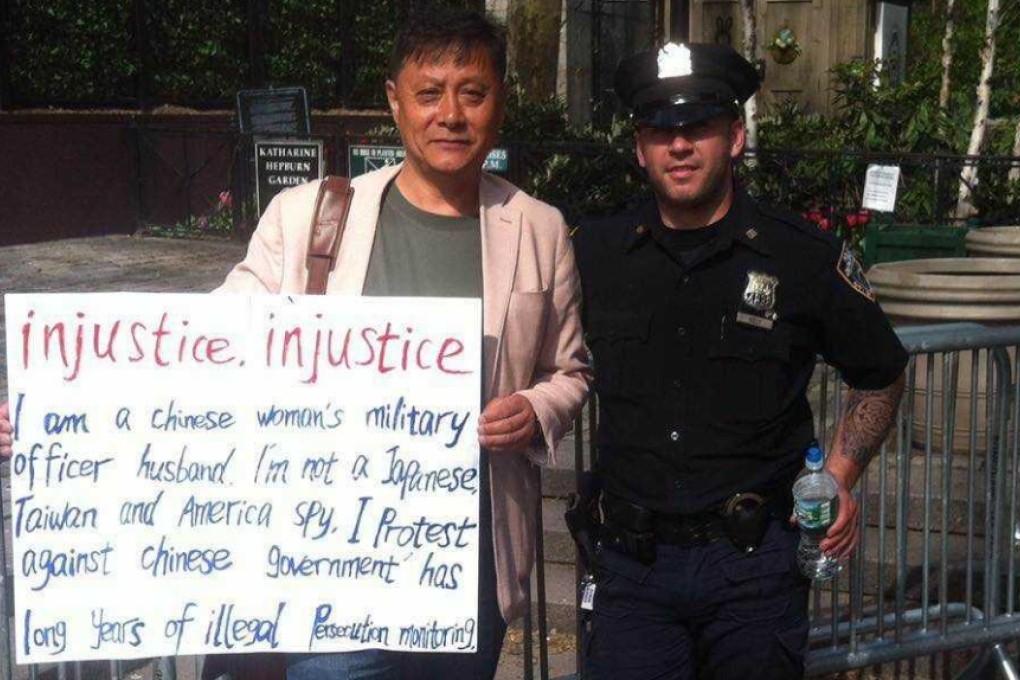Free from Chinese repression, desperate dissidents in US cling to tradition of petitioning to air grievances
- An attempt to win the attention of Chinese Vice-Premier Liu He in Washington last month puts a protester in legal jeopardy
- Despite slim chances of success, two petitioners who have fled China go to great lengths to make their voices heard

Chinese Vice-Premier Liu He came to Washington at the end of January for two days of negotiations and a meeting with US President Donald Trump in search of a trade war breakthrough. But Bai Jiemin, a former businessman from China now living under political asylum in New York, saw another kind of opportunity.
Since fleeing in 2016 from what he describes as years of monitoring and “harassment” by authorities in his native Shanghai, the 54-year-old protester has seized every chance to air his grievances when high-ranking Chinese politicians visit.
This time, Bai planned to run into the street, block Liu’s motorcade and deliver a hand-scrawled letter to the vice-premier detailing the injustices he said he had suffered. Among them, the letter detailed, was constant hounding by authorities who he said suspected him of spying because of his previous proximity to classified information – he was married to a senior officer in the Chinese air force – and frequent business trips abroad.
Liu’s visit did not herald a breakthrough in trade talks, nor did it end well for Bai, who ended up spending the Lunar New Year in a police cell. He is now free on bail and facing charges that include assaulting a security officer, who sustained a knee injury during efforts to restrain him.
As well as casting a brief shadow over the high-level trade talks, the episode has shone a light on the desperate lengths to which dissidents who have fled China will go to make their voices heard, despite the slim chance of success and, in the case of Bai, the legal peril such protests may herald.
Like many Chinese activists who continue to protest from overseas, Bai’s first foray into confronting the authorities was through the country’s “petitioning” system, a process by which aggrieved citizens can file complaints – often pertaining to local government – to higher-level officials in the hope of intervention.